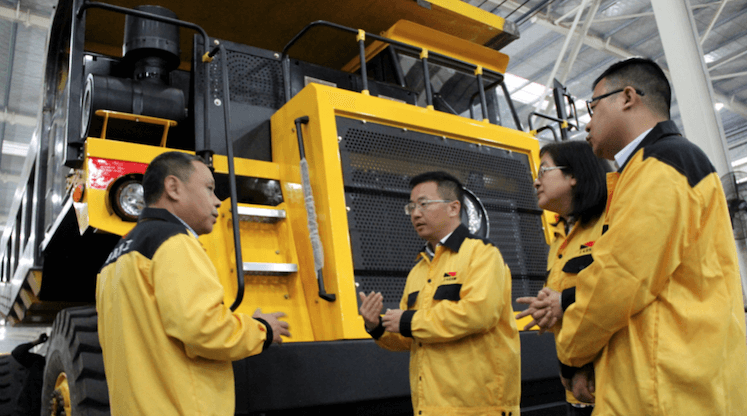An international team headed by scientists at the University of California at Berkeley revealed an all-electric heavy duty mining truck at the 2016 International High-Tech Fair in Shenzhen, China.
While not yet autonomous, it is the largest all-electric mining truck in the world, with an overall length of 8.8 meters, height of 4.2 meters, and 60 tons maximum loaded weight.
See Also: Otto and Budweiser buys the world the first autonomous trucking round
Over 100 scientists and engineers have worked on the mining truck for the past two years, ensuring that it is fit for use. It operates in extreme temperatures, from -30 to 50 degrees and the battery lasts over ten years.
One of the truck’s main selling points is the “state-of-the-art” battery system that provides over 20,000 charges, cannot catch fire, and charges extremely quickly compared to other electric trucks on the market.
“The vehicle combines a conventional internal combustion engine propulsion system with an electric propulsion system, which can be configured to meet different objectives such as improved fuel economy, increased power, and reduced emissions,” said Professor Samuel Mao of the University of California at Berkeley’s Mechanical Engineering Department.
The Institute of New Energy, Innova Power, Dongfeng Heavy Industry, and Siemens have all contributed to the development of the mining truck.
The critical need for big EVs
An all-electric mining truck could make up for 60-80 percent of the mining transportation costs, according to statistics provided by the university. Xing-Guang Huang, General Manager of Dongfeng Heavy Industry, said the truck is 60-70 percent more fuel efficient than conventional trucks.
It is not the first mining truck to go all-electric. Caterpillar’s CAT 795F AC Miner is a reasonable size for most mining companies and has been on the market for a few years.
In addition to fuel costs and climate-related issues, the future of large-scale EV technologies will be critical to the industrial autonomous vehicle market — since any new equipment developed will likely need to be freed from the need for fossil fuel to operate in closed and remote environments.
Other startups, like long-haul self-driving truck firm Otto, are trying to figure out the lucrative commercial freight market. That firm was recently acquired by Uber for $680 million.


















